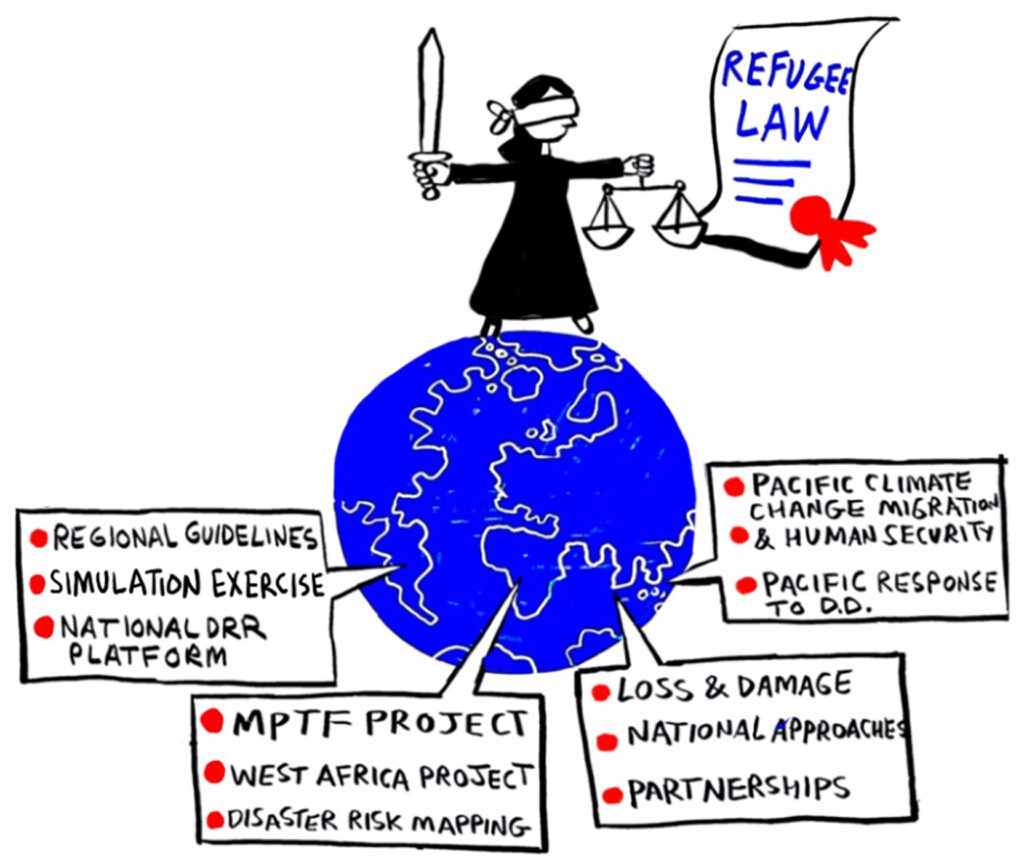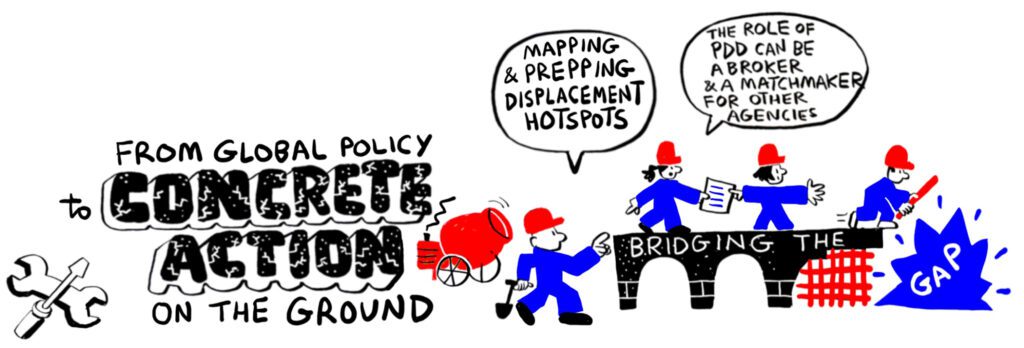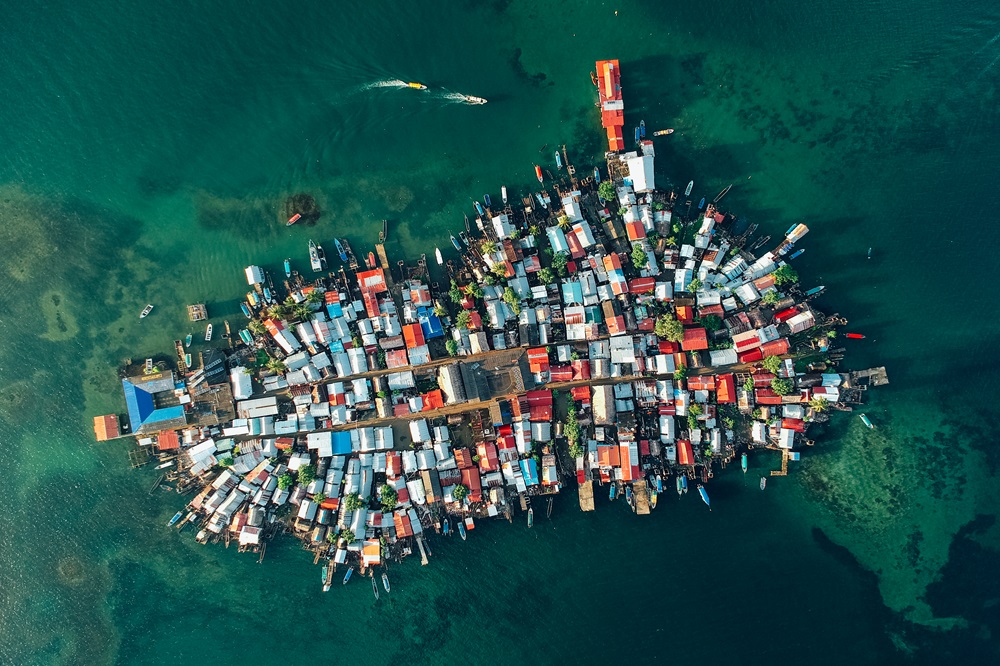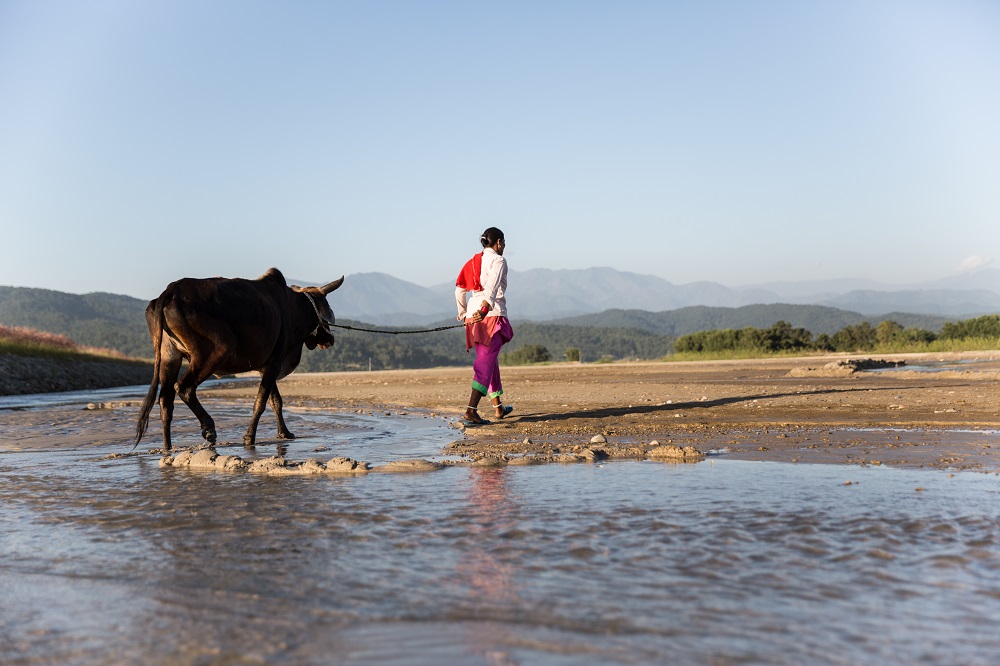
The PDD advocates for the recognition of disaster displacement in global policy frameworks and works with national governments and other relevant stakeholders to make sure policy is translated into action. A comprehensive approach to disaster displacement must also respond to disaster displacement risk at the local and national level, taking into account the frequency and intensity of hazards and the pre-existing vulnerabilities of affected communities. To manage displacement risk, States should respond to the needs of internally displaced persons while working to reduce vulnerability, build resilience, facilitate safe, orderly and regular migration, and conduct planned relocation out of hazardous areas.
Regional and sub-regional organizations and policy frameworks play a key role in addressing disaster displacement. Pursuing a partnerships approach, the PDD engages at regional and national levels, and responding to regional and national requests for support. In addition to working with States to draft frameworks, strategies and policies aiming to prevent displacement and better protect those displaced in the context of climate change and disasters, the PDD offers training and capacity building for States and civil society actors to put policy into action by supporting the implementation of effective practices and policy instruments. To do this, the Platform works with partners to provide guidance on disaster displacement and how it can be integrated into relevant policies and implementation strategies and provide opportunities for knowledge sharing.
 Taking a regional approach
Taking a regional approach
Disaster displacement can take many forms. Since it varies from region to region, appropriate responses need to be developed at the regional level and tailored to context. Regional and sub-regional organizations can play an important role. For example, in Africa, the Pacific and in the Americas the PDD has worked with regional and sub-regional organizations to develop regional and integrated responses and frameworks to address the challenges of disaster displacement.
As part of our 2024-2030 strategy, the PDD seeks to deepen its engagement in the Americas, the Pacific and Africa as well as expand its capacity to respond to regional and national requests for support, in particular from governments and regional organizations in Asia and the Caribbean.
As a State-led platform, the PDD is uniquely positioned to foster collaboration and integrated implementation at national and regional levels. The Platform prioritizes responding to requests made from States and regional organizations to provide technical support. Examples of such support include the development or dissemination of guidance, attending and participating in regional meetings, organizing capacity building workshops and trainings, commissioning targeted research and creating opportunities for conversations across stakeholder groups at the binational and regional level, always partnering with stakeholders from UN organizations, civil society, and academia. The PDD engages in and organizes regional dialogues on disaster displacement and contribute to regional strategies and planning. To do this, the Platform works with governments to promote mutually reinforcing policy actions across thematic areas and invites policymakers from different ministries, like climate change, disaster management, migration, and foreign affairs, to create a common understanding and provide opportunities to collaborate on efforts to address disaster displacement.
The PDD recognizes the important role played by regional and sub-regional organizations in addressing disaster displacement in line with their respective mandates and international standards and commitments. The Platform works with and supports regional organizations and seizes opportunities for joint action in relevant policy areas under the leadership of PDD Steering Group members and other States.
 National engagement
National engagement
Action on disaster displacement will have to happen at the national and local levels and the PDD works with governments requesting support for capacity building and policy development. For example, in February 2024, the Platform worked with the Government of Costa Rica and other partners to organize a National Forum on Human Mobility and Climate Change, where local government leaders had the opportunity to share how climate change is impacting their communities and livelihoods and identify opportunities for policymakers to mainstream human mobility into climate change and disaster risk reduction efforts.
The Project to Avert, Minimize and Address Disaster Displacement (PAMAD) project is another example of our national-level support. The PAMAD projects seeks to better understand displacement in the context of losses and damages associated with climate change and to support measures aimed at averting, minimizing and addressing displacement and its impacts for vulnerable people and communities. To do this, we are working with the Governments of Bangladesh, Fiji, Guatemala and Kenya to bring together actors across sectors to conduct displacement risk assessments, enhance national and local preparedness, develop an integrated planning process that considers climate change, DRR, migration and other relevant sectors, and provide technical guidance on access to finance.
Illustrations by Josh Knowles





